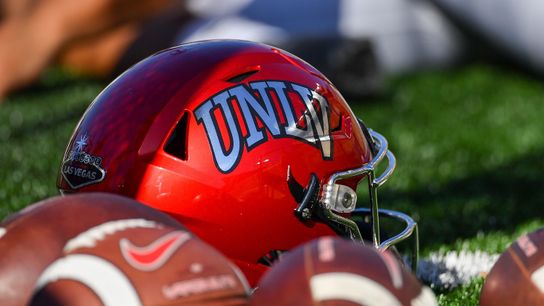LAS VEGAS — The winds of change have blown through college football again — and this time UNLV and the Mountain West Conference are in the eye of the storm.
The Pac-12 Conference announced Thursday morning that Boise State, Colorado State, Fresno State and San Diego State would be leaving the Mountain West and joining the Pac-12 in 2026.
“For over a century, the Pac-12 Conference has been recognized as a leading brand in intercollegiate athletics,” Commissioner Teresa Gould said in a statement. “We will continue to pursue bold cutting-edge opportunities for growth and progress, to best serve our member institutions and student-athletes”
The announcement itself wasn’t so much of a surprise. After all, there is only so many logical outcomes for NCAA Division I college football west of the Mississippi River in the modern landscape. What was surprising was UNLV’s exclusion from the party. Doubly so when you consider that Colorado State got an invite.
So, what could be the reason for Vegas’ snub? There’s a few credible whispers out there. Some more credible than others.
The first hang up in UNLV potentially joining a power conference is their entanglement with Nevada-Reno through the Nevada Board of Regents. The Board most likely would not approve of a deal that wasn’t a package move, unless there was considerable financial incentive from a conference that would make it worth the political headache.
Another reason, though this is less substantiated, is that the power conferences now see Vegas as a professional sports city and no longer one capable of supporting a high-level collegiate program.
Perhaps more important, they see UNLV at the bottom of the totem pole in the city’s growing sports landscape. Las Vegas has proven to be a worthwhile investment for college sports. The gold rush of conference basketball tournaments, football championships games, media days and neutral site contests are proof of that.
That is the issue for UNLV: Conferences see Vegas as a destination, the place where you go for the cornerstone events and media soireès, not necessarily the place for a successful individual athletic department.
To put it in simpler words, they don’t need UNLV to get Las Vegas. They already have Las Vegas.
This puts city officials and the LVCVA in a unique position as well. If these conferences want to continue using Las Vegas as their championship destination, perhaps they need to return a favor and throw UNLV a bone in this realignment saga.
That might be wishful thinking, but more bothersome itches have been scratched in the world of sports politics.
UNLV isn’t yet out of contention for one of the Pac-12 spots up for grabs, but that would probably require a implosion of the Mountain West because of legal hang-ups that prevented the Pac-12 from taking more than four teams to start. There's also the possibility they could still land in the Big 12.
While both scenarios are possible, UNLV also will get a handsome revenue boost because of the aforementioned four schools’ departure along with avoiding a $17 million exit fee. This might make staying along for a Mountain West rebuild an incentivizing offer.
“We know that four members of the Mountain West have announced their intentions to leave the conference in 2026,” UNLV Athletics said in a statement. “Our focus remains on doing what is best for our institution, current and future student-athletes, alumni, donors and the greater Las Vegas community.
"We continue to evaluate all options.”
